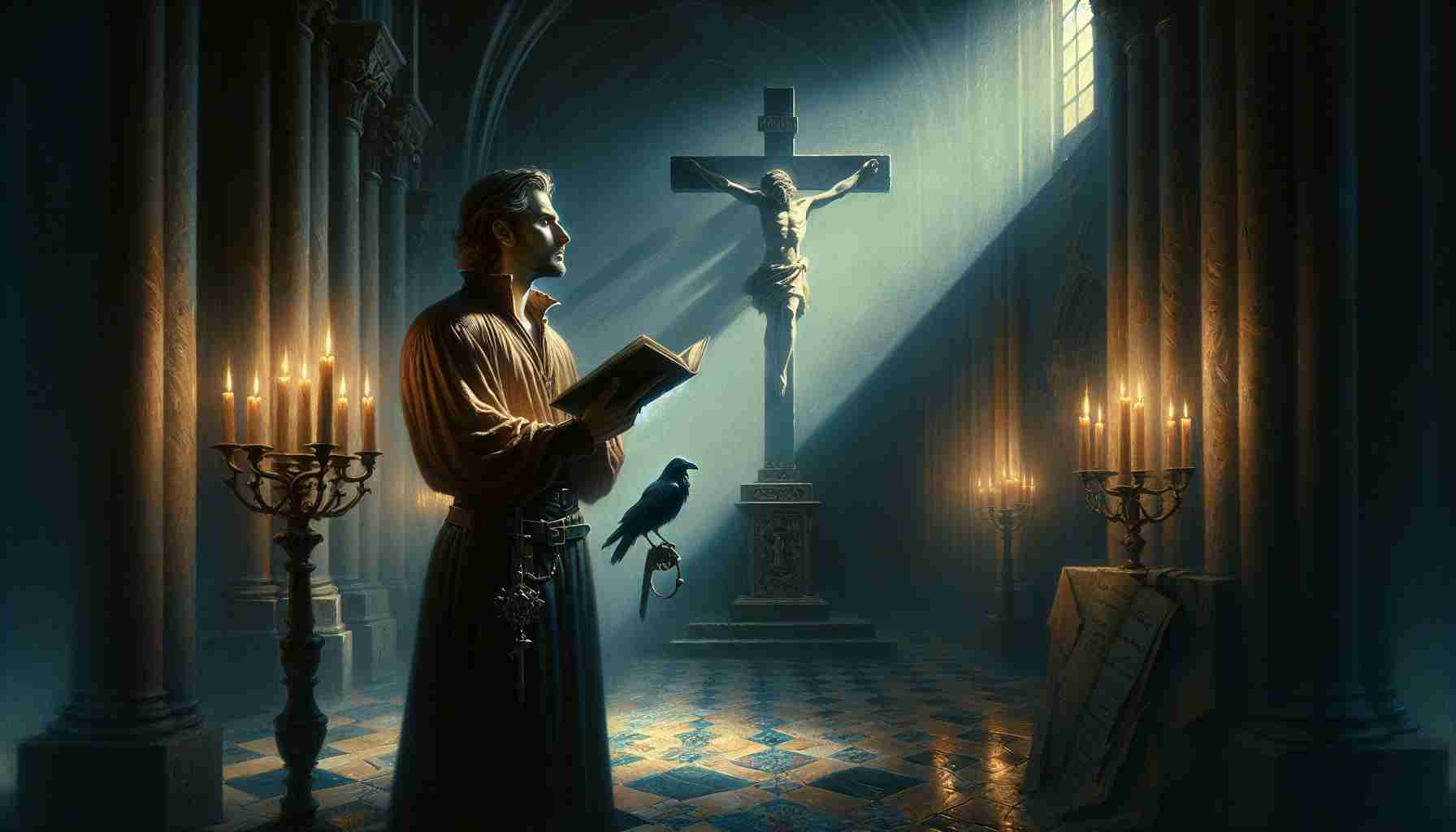

The parchment crackled in the torchlight, edges smudged with wax and ash. Beneath the vaulted ceiling of Santa Maria Maggiore, Rome’s summer heat pressed down like judgment itself. Cardinals stood in crimson clusters, breath thick with apprehension, as Pope Leo X unfurled the scroll with deliberate weight. Exsurge Domine—“Arise, O Lord”—began the bull, invoking divine wrath against the Saxon monk whose quill threatened to pry apart the pillars of Christendom.
Candles guttered. The Pope’s voice, smooth and regal, rose above the stone choir. He spoke of rebellion, of pride masked as piety. He spoke of Martin Luther.
In far-off Wittenberg, the scent of burning parchment would soon billow into the sky, black flakes rising like the souls of the damned—or the prayers of the faithful, depending on who watched.
“Thy Word is a lamp unto my feet, and a light unto my path,” the German scholar had said, quoting Psalm 119:105 as he cast the papal bull into the flames. Those who had once whispered in his university halls now raised their voices in the churches and streets. Printing presses clattered like battle drums. The Church had condemned a heretic; the people saw the rise of a reformer.
But before the bonfire, there had been a hunger.
Years earlier, in the cloisters of the Augustinian monastery, Brother Martin had shivered through sleepless nights, scouring Scripture, fearing the wrath of a righteous God. He passed hours before crucifixes in silence, lips dry from whispered confessions. Beneath frescoed saints and the echo of chanted Latin, doubt flared like candlelight. If salvation came through penance and indulgences, why did his heart still tremble?
He found his balm not in Rome, but in Rome’s Scripture. The epistles of Paul became his refuge. The just shall live by faith. Not sacrifice, not coin.
When Luther nailed his Ninety-Five Theses to the church door in 1517, the iron clink seemed small. But like a spark striking dry wood, wind caught it. Three years later, the Church roared back.
The bull listed his errors as venomous lies. It accused him of subjecting papal authority to the test of Scripture, of defying apostolic tradition. It was not just Luther they judged—it was the flames of dissent he fanned.
A courier crossed the Alps with the bull, tucking it into a satchel beside gold for bribed courthouses and letters for complicit bishops. When Luther received it, standing beneath the old linden tree outside Wittenberg’s Elster Gate, his hand did not tremble.
The fire he lit devoured the bull, the papal decretals, and a copy of canon law. Smoke nose-dived into the chilled wind, carrying centuries of silence away with it.
News spread like a contagion. In Zurich, in Strasbourg, in Geneva, murmurs turned to movement. Faith grew feet. Men and women, who once bowed wordlessly before altar rails, began reading aloud from Bibles in vernacular tongues. They taught their children the Ten Commandments, not from paintings, but from printed catechisms.
Yet even reform bore scars.
The Church split, not once, but fractally—dividing communities, families, and hearts. In Rome, Leo X died wealthy, surrounded by art and sonatas. In Wittenberg, Luther grew older, wearied by the discord that followed him. Among his followers, some took faith into chaos—burning churches, mocking sacraments. That, too, he mourned.
Still, the Word endured.
Centuries later, a traveler standing within the hushed ruins of the Wittenberg monastery might brush a hand across stone worn smooth with prayer. They could walk the path from the cloister to the spot where flames once danced, and imagine ink-stained hands casting a parchment into fire. The echo of a Psalm would seem to linger on the wind: Thy word is a lamp unto my feet.
The bull could be burned. The Word could not.